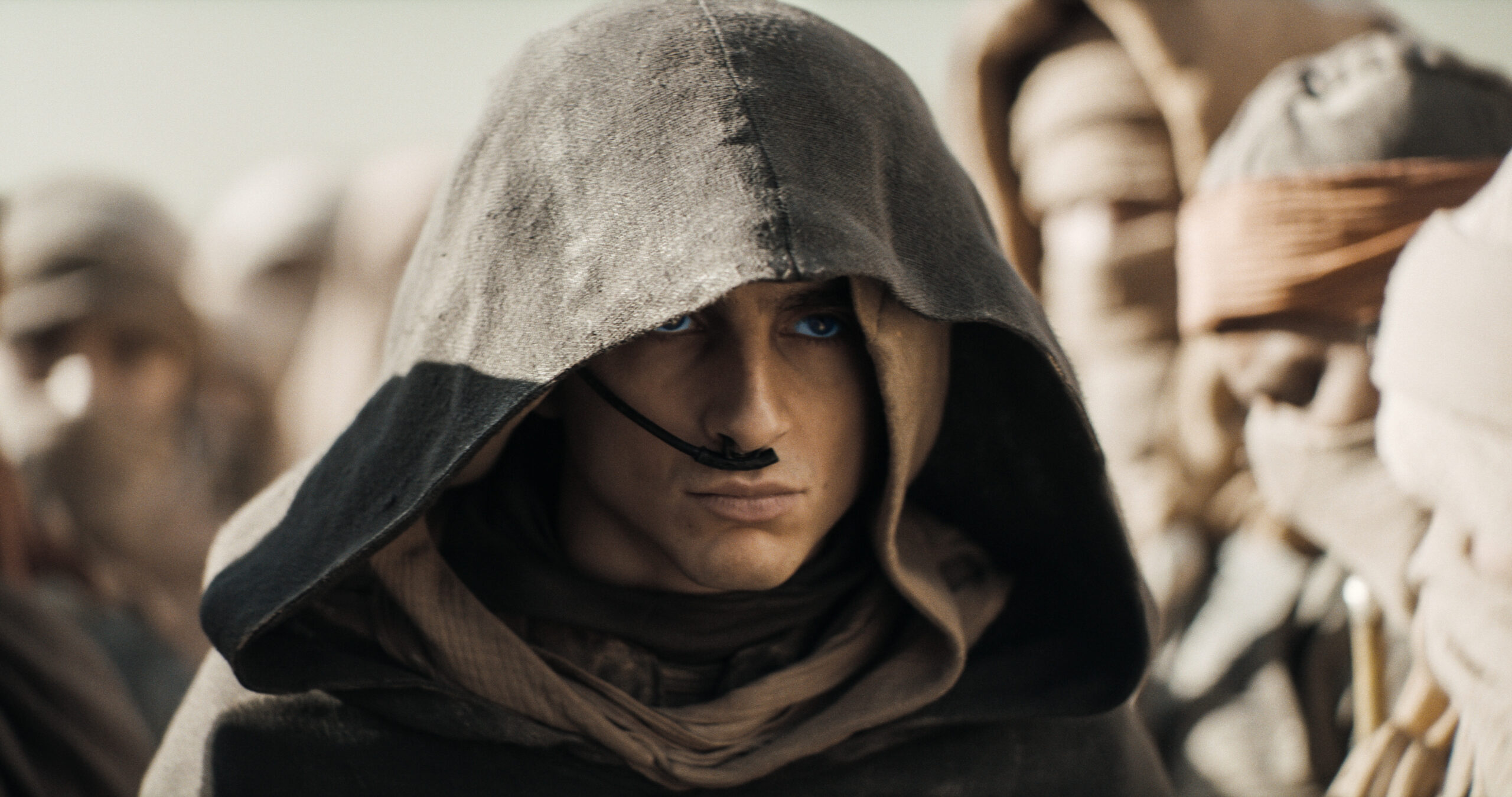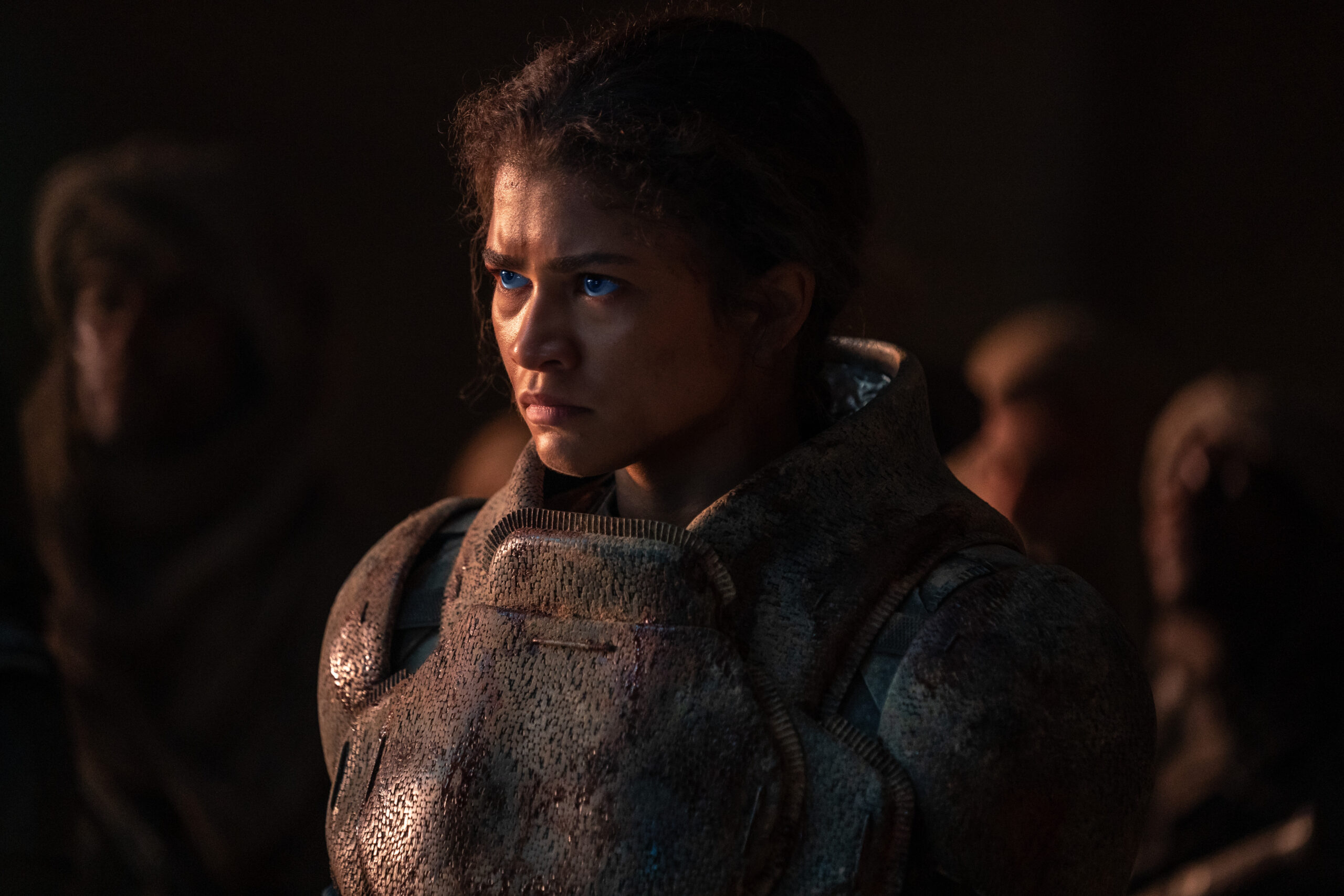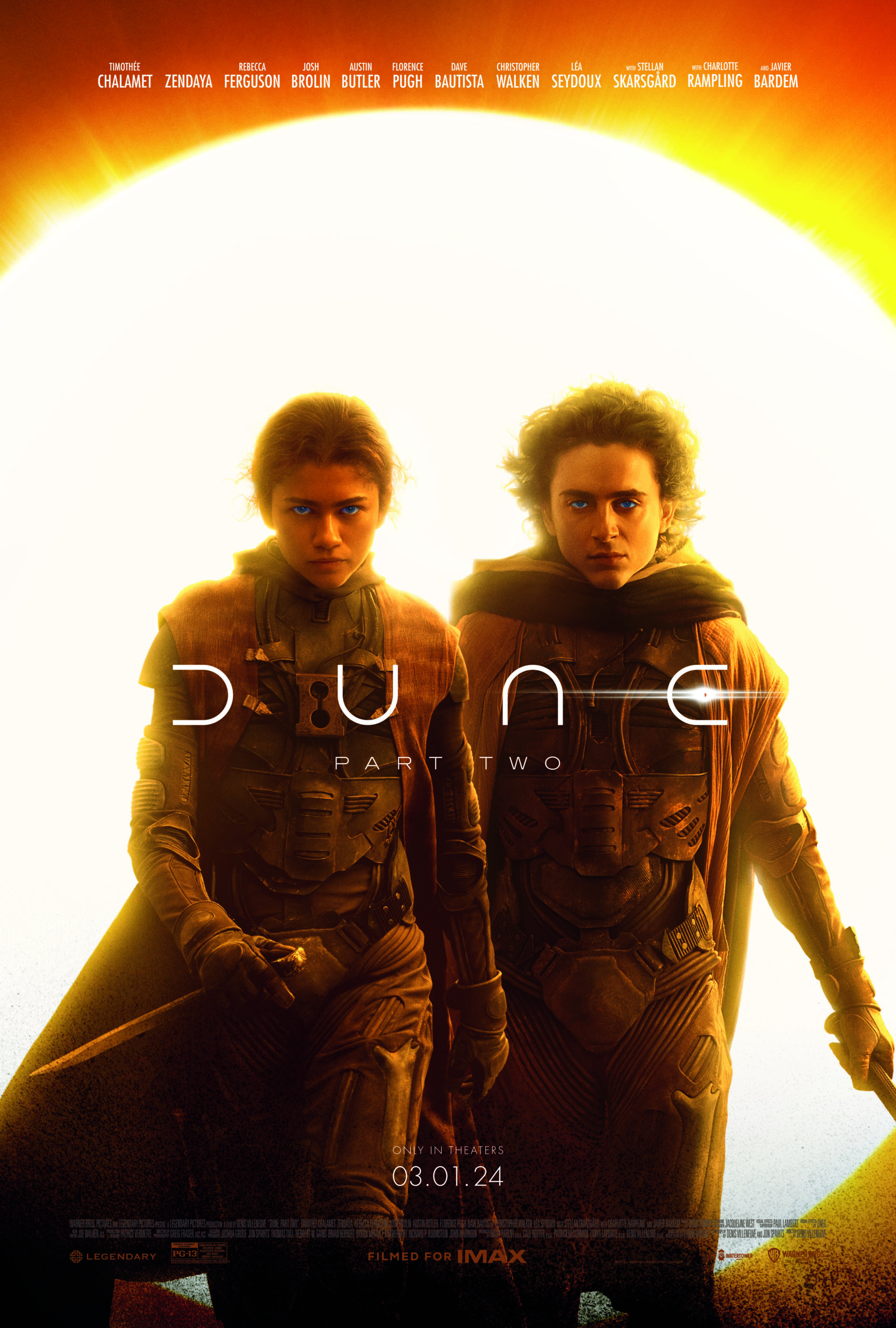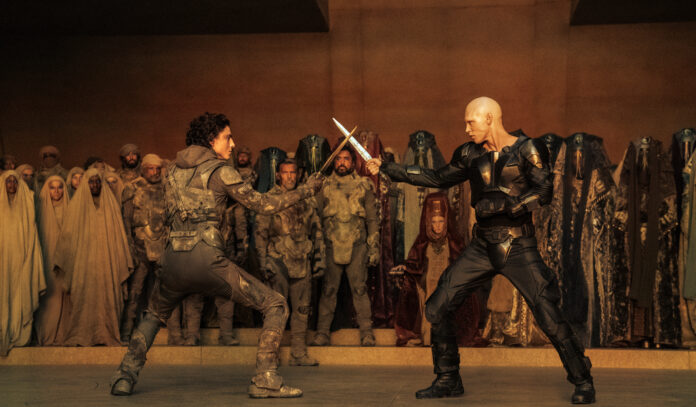This post contains affiliate links and our team will be compensated if you make a purchase after clicking on the links.
In the burning crucible of Arrakis, the spice-stained sands shift and the future of an empire hangs in the balance. Denis Villeneuve’s long-awaited “Dune: Part Two” has landed not with a whisper, but with the thundering force of a sandworm breaching the desert’s vastness. Building upon the exquisitely crafted foundation of its predecessor, “Dune: Part Two” emerges as a triumph in every aspect: a sci-fi spectacle that pierces the eyes rattles the soul, and leaves an echo resonating long after its final, heart-stopping frame.
It is a testament to Villeneuve’s meticulous vision, and the strength of Frank Herbert’s source material, that “Dune: Part Two” doesn’t merely meet the impossibly high expectations set by the first film; it eclipses them. This is the explosive payoff, the crescendo after the operatic overture, where promises whispered on the wind are either bloodily fulfilled or shattered irrevocably.
Where “Dune: Part One” focuses on establishing the intricate web of players and the treacherous beauty of Arrakis itself, “Part Two” casts us into the inferno. Paul Atreides (Timothée Chalamet), the young heir whose prescient visions hold a terrible, tantalizing future, is no longer just a pawn in a game he barely understands. Driven by a desperate desire to alter the devastating path he foresees, Paul navigates shifting alliances, bitter betrayals, and the growing burden of a messianic mantle he both craves and fears.

Chalamet’s performance has matured in step with his character. The wide-eyed naiveté of the boy duke is replaced with the haunted grimness of a young man forced into a brutal coming-of-age. Zendaya’s Chani, now far more than a spectral figure in Paul’s dreams, is a revelation. Her fierce love for Paul and her unwavering loyalty to the Fremen people are both her strength and potential vulnerability – a dichotomy Zendaya navigates with subtle brilliance.
New arrivals to this complex tapestry only deepen the intrigue. Florence Pugh as Princess Irulan, daughter of the galaxy-ruling Emperor Shaddam IV, is a study in contrasts. Beneath her cool, regal exterior simmers the ambition of her Corrino bloodline and the chilling knowledge that she’s destined to be Paul’s wife, whether through politics or conquest. Austin Butler delivers a shockingly charismatic take on Feyd-Rautha Harkonnen, the twisted heir of the Atreides’ blood enemies. Butler’s Feyd-Rautha is both monstrous and mesmerizing, a cruel reflection of Paul’s potential darkness.
The world of “Dune” has always been one where political machinations are as dangerous as the desert itself. “Part Two” plunges us headfirst into the vipers’ nest of the imperial court and the desperate gambles of rebellion. Alliances forged in blood are broken with a whisper. Whispers themselves become blades, their echoes carrying promises of power and doom in equal measure. What’s breathtaking is that amidst the complex plotting and shifting power dynamics, Villeneuve never lets us forget the human cost. Every death, every sacrifice, every flicker of doubt on Paul’s face carries staggering weight.

To call “Dune: Part Two” visually arresting feels like an insult to the achievement on display. Villeneuve and cinematographer Greig Fraser, already a dynamic duo from their work on the first film, conjure a film of extraordinary visual power. The stark beauty of Arrakis, a brutal paradise of wind-blasted rock and shimmering, spice-laden dunes, is rendered with breathtaking detail. The immensity of the sandworms, ancient deities of the desert, is humbling in its scale – a testament to the brilliance of the creature design and the special effects team.
Yet, Villeneuve’s eye extends beyond mere spectacle. The film is rife with painterly compositions: a splash of blue-within-blue eyes against a ragged Fremen stillsuit, the flicker of candlelight on a face etched with sorrow, the vast sweep of a battle contrasted against the aching intimacy of two figures clasped in desperate embrace. Each shot is meticulously deliberate, infusing the narrative with unspoken layers of meaning.
Hans Zimmer’s score is an entity unto itself, transcending mere accompaniment to become a driving force in the film’s emotional power. Otherworldly yet primal, Zimmer’s compositions weave an auditory spell. Tribal drums thunder beneath mournful female vocals, mirroring the relentless heart of Arrakis and the keen of desert women over their lost warriors. Electronic pulses and dissonant chords intrude with increasing frequency as Paul’s visions bleed into reality, unsettling both the characters and the audience.

Discover more from Socalthrills.com
Subscribe to get the latest posts sent to your email.












